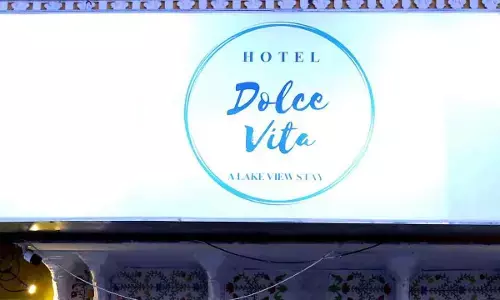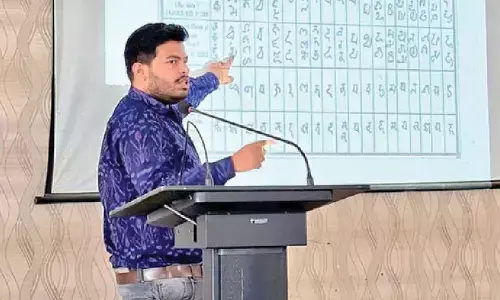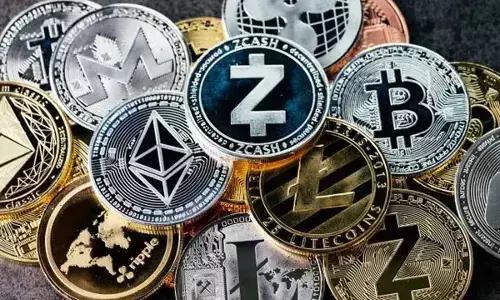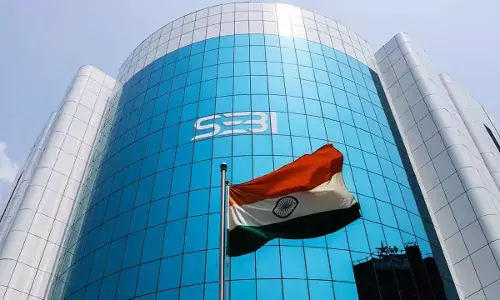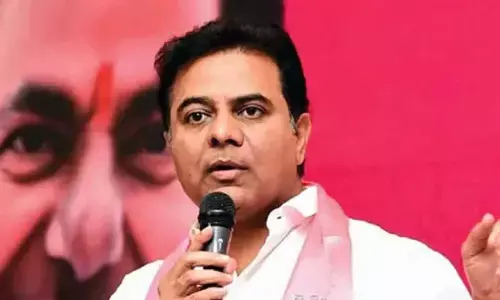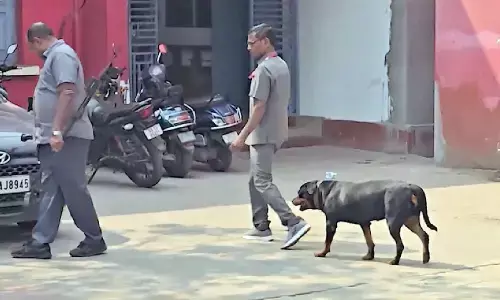MyVoice: Views of our readers 20th November 2022
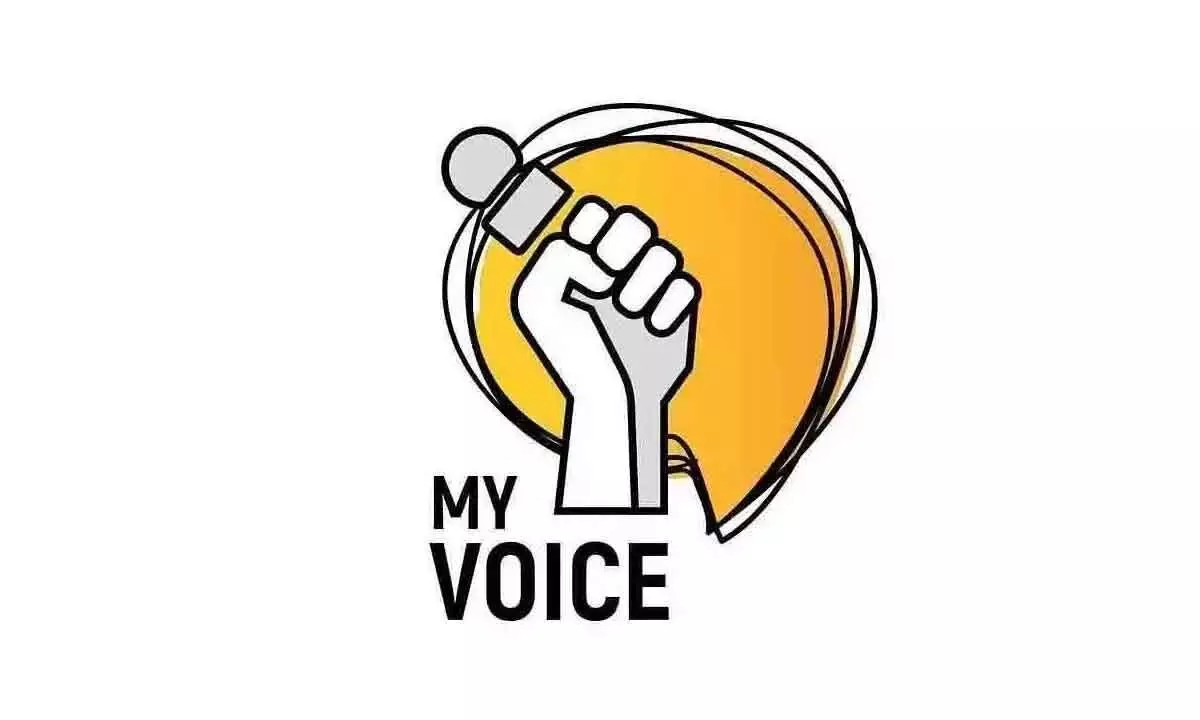
MyVoice: Views of our readers 21st March 2023
Views of our readers
Rahul counters BJP bid to ennoble Veer Savarkar
Rahul Gandhi at a press conference on the sidelines of Bharat Jodo Yatra raised a controversial statement that that RSS and BJP ideologue Vinayak Damodar Savarkar had signed many mercy petitions to the British government and by doing so he betrayed Gandhi, Nehru and Patel. Ranjit Savarkar, the grandson of Savarkar, BJP and Shinde group Shiv Sena filed defamation cases against Rahul Gandhi on his comments against Savarkar. Even Uddhav Thackeray didn't support Rahul's comments. Mahatma Gandhi's grandson Tushar Gandhi came in support of Rahul Gandhi's comments.
It is a fact that Rahul Gandhi did not target Savarkar but only highlighted the "historical facts." What he said is not new and many historians agree that Savarkar signed many petitions for his mercy. His mercy petitions are available in many museums in our country. Historians like Narendra Singh Serila in his book "The untold story of Indian partition" and D N Bokhale in his book "Swatantraya Veer Savarkar Ek Rahasya" clearly mentioned about Savarkar's mercy petitions. Savarkar in his many mercy petitions along with his brother declared their political options and both stated that they did not entertain any revolutionary ideas and if they were set free they would like to work under the Reforms Act, for they consider that the reforms enable one to work thereunder so as to achieve political responsibility for India. They both stated unconditionally that they did not desire independence from the British connections and on the contrary they felt that India's destiny can be best worked out in association with British. For his mercy petitions, Savarkar was given a supervisor post in jail and after releasing him from jail he was granted Rs 60 monthly pension.
Savarkar was also alleged to have a role in the conspiracy for the assassination of Mahatma Gandhi. Sardar Vallabhbhai Patel said in a letter to Nehru that, "A fanatical wing of the Hindu Mahasabha directly under Savarkar murdered Mahatma Gandhi." It is a fact that in Mahatma Gandhi's assassin, Nathuram Godse, was influenced by Savarkar. It was Savarkar's ideology that was behind the killing of Mahatma Gandhi. Kapur Commission who gave a report on Mahatma Gandhi assassination case said that evidence only pointed towards the theory of Savarkar and his group being a part of the criminal conspiracy.
Even Nehru, Indira Gandhi, Rajiv Gandhi never dared critisise Savarkar, but Rahul Gandhi proved daring enough. BJP and Narendra Modiji often criticise Nehru and now Rahul and Congress are aggressive in criticising BJP and RSS ideologue Vinayak Damodar Savarkar. But, Rahul Gandhi should stop criticizing any individual who is long dead. He should work on present and not unnecessarily on past.
Zeeshaan, Kazipet
II
It was in the year 1923 that Vinayak Damodar Savarkar or Veer Savarkar founded Hindutva . After the dawn of Independence, it has become a customary practice to give a wide publicity to the name and fame of prominent leaders like Mahatma Gandhi and Nehru, while keeping oblivion to the contribution made to the Indian society by the Hindutva ideologues like Veer Savarkar. In fact, Hindutva is an offshoot of Hindu nationalist parties like RSS, VHP, BJP etc., and is collectively known as Sangh Parivar. Of late, the celebrations of Azadi ka Amrit Mahatsav kickstarted by the government have opened up new avenues to recall the role played by such men during the freedom struggle.
Since the year 2014, when BJP came to power, the nation's political agenda was being directed under the party compelling all other parties to accept BJP's leadership. As all major parties are treading the path of BJP, awareness about the proponent of Hindutva ideology, Veer Savarkar has come to the fore including books written on his life. It was only during the reign of BJP that buildings and roads in various parts of the country were named after Savarkar. But naming of an international airport in the Andaman Islands after Savarkar during Vajpayee's regime had become the bone of contention in the nation's polity. Veer Savarkar who spilled the beans for Hindutva ideology was being staunchly opposed by non-BJP parties.
He was a Hindutva patron and a reformist to the core. He declined the caste system and untouchability. He also supported the concept / freedom of choosing a profession not based on caste. Further, he was a non-believer of God who wished that India had remained a Hindutva nation. He did not wish for a religious oriented nation but was in favour of a culturally oriented society. He questioned the connection between Indian Muslims and Khilafat movement originated in Turkey.
Savarkar served 11 years jail sentence in Andamans by the British rulers and was set free by begging pardon. His portrait was unveiled in Parliament Bhavan and a commemorative stamp was released on his name especially during the BJP rule. This gives us to understand that life and contribution of Savarkar to the nation has become relevant under the current state of affairs wherein Hinduism has been reinforced as a popular ensemble.
Bh Indu Sekhar, Hyderabad
It's high time for carbon credits
Carbon credits, also known as carbon offsets, are permits that allow the owner to emit a certain amount of carbon dioxide or other greenhouse gases. One credit permits the emission of one ton of carbon dioxide or the equivalent in other greenhouse gases. The carbon credit is half of a so-called cap-and-trade programme. Companies that pollute are awarded credits that allow them to continue to pollute up to a certain limit, which is reduced periodically. Meanwhile, the company may sell any unneeded credits to another company that needs them. Private companies are thus doubly incentivised to reduce greenhouse emissions. First, they must spend money on extra credits if their emissions exceed the cap. Second, they can make money by reducing their emissions and selling their excess allowances.
The carbon credit exchange will play a key part as the national trading mechanism to monitor and analyse country's greenhouse gas emission reduction. Our country is one of the world's biggest greenhouse gas emitters and we are aiming to reach net zero emissions by 2070. To achieve this the lower house of parliament passed an Energy Conservation (Amendment) Bill 2022 in August that seeks to establish carbon credits trading.
India's green energy companies, such as Adani Green and carbon offsetters like EKI Energy Services, Hero Future Energies, Ayana Renewable Power and global private equity major, KKR's Virescent Infra have come together to develop a carbon credit market to help achieve energy transition goals. But more companies should come together to develop carbon credit market.
The government has to take measures imperatively to make our market more for carbon credit so that it can be utilised to meet the country's Nationally Determined Contribution (NDC) under the Paris Agreement goals.
We have to keep carbon credits to ourselves to achieve NDCs but anything beyond that can be sold anywhere in the world. So other countries can look forward to huge quantities of carbon credits being available in our country we should take strict measures to diversify its supply chain in the area of solar manufacturing.
The another method, which will require changes in the energy and transport sectors should be supported by growing embrace of electric vehicles. We have to make a pledge to achieve net zero emissions by 2070 joining a global commitment to cap warming to less then 3 deg Celsius above pre-industrial levels.
Vijaykumar H K, Raichur
Sweet memories of Super Star Krishna
It was late 1960s when I was a high-school student at Gokavaram, a village in East Godavari district where my father was working as the Sub-Inspector of police. Krishna came to Thantikonda, a hamlet , about 10 km away from Gokavaram, famous for the temple of Lord Sri Venkateswara. Those were the days of the celebration of the Lord's Kalyanamohostavam and a musical night was being organised in the evening. While the singers were regaling the audience with singing of film songs, with a sudden break of the programme, Krishna along with Vijayanirmala appeared on the stage and made a brief address to the audience amidst a huge wave of delightful screams and whistles from the audience. The actor told the audience that he, having finished the shooting of his film, Mosagallaku Mosagadu, in Rajasthan, came there to have the darshan of the God and the movie was made with a good casting, wonderful music, beautiful sceneries and innovative cinematic technology. He asked the people to watch and enjoy the movie. After his speech, he with Vijayanirmala went behind the stage.
Accompanied by a constable, I went behind the stage where Krishna was relaxing, smoking a cigerette and was engaged in conversation with Vijayanirmala. Clad in a simple dress, seated on a chair, Krishna in glowing golden complex with light reflecting all around looked like a prince charming. Our constable introduced me to Krishna, saying "Sir, this boy is the son of our SI garu". I stood so close to the actor, staring at the idol of my adolescent years with ripples of raptures running through my young body. Smiling so radiantly at me, Krishna asked, "What's your name?" "My name is Venugopala Rao," I muttered diffidently. "Lovely name," uttered Vijayanirmala with her wide eyes glistening. Nodding his head cutely, Krishna asked, "What class are you studying?" "I am studying 9th class,"I answered." "That's good. Do you watch movies?" he continued. "Yes, Sir, I watch movies. I love your movies and admire your action in movies. In fact, I am an ardent fan of yours," I poured out so excitedly. Still smiling and looking into my eyes, Krishna further said, "Our movie "Mosagallaku Mosagadu" will soon be released at theatres.You can watch it. I am sure you will like it and enjoy it". "Certainly, Sir, I'll watch the movie. I shall be very eagerly looking forward to the joy of watching the movie" I assured him, still being on cloud nine. Thanking Krishna for the loving and lively conversation he had with me, I strolled out from behind the stage, carrying within my adolescent heart, the sweet memory that got etched deeply on my psyche.
Dr Venugipala Rao Kaki, Kakinada
Ugly spat between Kavitha, Aravind
The fight and war of words between MP Aravind Dharmapuri and MLC Kavitha, it seems, will only escalate and turn uglier. Accusing and hurting each other personally shows the low levels to which morality in politics has stooped into. Developing animosity, leading to open fights & even fisticuffs, is not politics which gentlemen and statesmen idolise and practise. They being at loggerheads with each other prove beyond doubt that statesmanship in present-day politics never exists and is a thing of the past. It is saddening & equally disturbing that statesmen politicians are nowhere to be found and heard.these days.
Poltics of hatred, oneupmanship, corruption, greed, dishonesty etc., is the prevailing trend. It is very difficult and even impossible to perhaps attempt to cleanse the rot which only is getting murkier by the day. Our present day politicians would do well to learn lessons of morality and decent behaviour from their older generation of statesmen politicians (who were role models) of the early 50s, 60s & 70s. Will they think of doing so is however a big question. Against this background, the high commands and party seniors carry the responsibility to intervene, set things right and instill the much-needed discipline decorum & decency among its cadres, else judiciary & courts might step in.
N R Raghuram, Hyderabad
Cong denied Bharat Ratna to Patel and Ambedkar
Thousands of freedom fighters sacrificed their wealth and lives for the countries freedom but under the banner of congress being guided by Mahatma Gandhi, India won freedom. After attaining freedom Gandhiji picked Nehru as first Prime Minister and also suggested him to liquidate 'Congress' as the purpose for which the party was created was achieved. But Nehru did not honour Gandhi's advice and he retained the name 'Congress' to exploit it politically.
Since then the Congress has become the family and so convinced is the family that the Congress is existing for it and the party is nothing more than family conglomerate. Nehru and pseudo Gandhi family members outrightly exploited the Congress name. No other leader other than the first family had command on the party. For instance, then top leaders like Ambedkar who headed the constitution drafting committee and Sardar Patel who gave us unified India were neglected by Nehru and he did not confer the 'Bharat Ratna' on either of them after it was instituted in 1954. Instead, Nehru gave it to himself in 1955. Again Indira Gandhi gave herself Bharat Ratna in 1971 and it was conferred posthumously on Rajiv Gandhi in 1991 but none of them considered either Ambedkar or Sardar Patel worthy of the nation's highest honor. Sadly, it was left to non-Congress governments to accord this honor posthumously to these two great sons of India.
Rama Krishna M, Kakinada
Is CAG, too, a caged bird?
Like CBI, is CAG also a caged parrot? So, it seems from the article on 'Lofty budget aims remain just that' by V Ramu Sarma. It isnt enough if budgets are meticulously planned and drawn up. The ratification in parliament has to be done only after a thorough debate discussion takes place as, there is always a scope for over allocation, under allocation & even no allocation for different sectors of the economy The revenues generated from different sectors out of the allocations made and the funds spent from the allotted budgets of the previous budgets has to be taken into consideration while formulating each years budgets.
Whether this convention is followed is anybody's guess. The presentation of budgets each year has sadly become a necessary ritual with not much brain storming & due diligence exercised before its presentation. There is nothing unique & novel in each budget. No far reaching policy decision to improve the nation's financial ecosystem is taken. Only minor cosmetic changes here and there form part of every annual budget. To expect CAG & other financial regulators to do their job of cleansing a system especially when politics plays its unwanted role is to only ask & bargain for more. An independent body has to work within the systemic governmental boundaries of restrictions. A rebook & reassessment of its functioning is urgently called for by both the centre & states to achieve India's dream of realizing a 3 trillion stabilised vibrantly thriving economy.
EWS quota: Another piece in the pie
Will the governments apply the same Creamy Layer norm to the forward castes also? It will be a better programme if the governments allow the EWS reservations to all categories, as opined by the CJI and other experts.
No other judgement by the Supreme Court in recent times was discussed as widely as the one upholding the law allowing reservations for the people coming under the "Economically Weaker Section" (EWS) category. One of the reasons for such heated discussions and debates about the judgement perhaps is the fact that the topic, 'Reservations,' itself is a sensitive one and has become a tool in the hands of our politicians.
Reservations have already divided our society vertically. The proposed 10% reservations for the EWS people over and above the existing 50% of reservations for SCs, STs and BCs will just be yet another piece in the pie. On the face of it, the move is a good one since there are many poor people in the so-called forward castes and they do need some succor from the governments.
Segregating the poor among the forward castes is a big challenge. All depends on the criteria to be set for fixing the eligibility. Limit of annual income, source of income, among other things, decide the poverty among them. A person who has let out some costly land and house property and the income from this property is enough for his family, but he doesn't pay any tax for his income. Will he or his children be eligible for the EWS Reservations?
When I was in the university hostel during my PG course, many of my friends from forward castes were in the hotels on the basis of EBC condition. In fact, the parents of these students were rich landlords with rural background and without a fixed source of income. Of course, those were the days without PAN and Aadhaar cards which now will play a vital role in finding out the economic status of people.
Again the Creamy Layer condition has deprived many OBC people of their rightful reservations. Will the governments apply the same Creamy Layer norm to the forward castes also? It will be a better programme if the governments allow the EWS reservations to all categories, as opined by the CJI and other experts.
Again the 3:2 split verdict in the EWS case needs a relook. As far as possible, the Apex Court must avoid split judgements at least in sensational cases which will overtly or covertly touch and alter items like the Fundamental Rights and the basic structure of the Constitution.
However, the judgement in question will have a far-reaching impact not only on our social environment but also on the very Judiciary system.
M Somasekhar Prasad, Hyderabad








